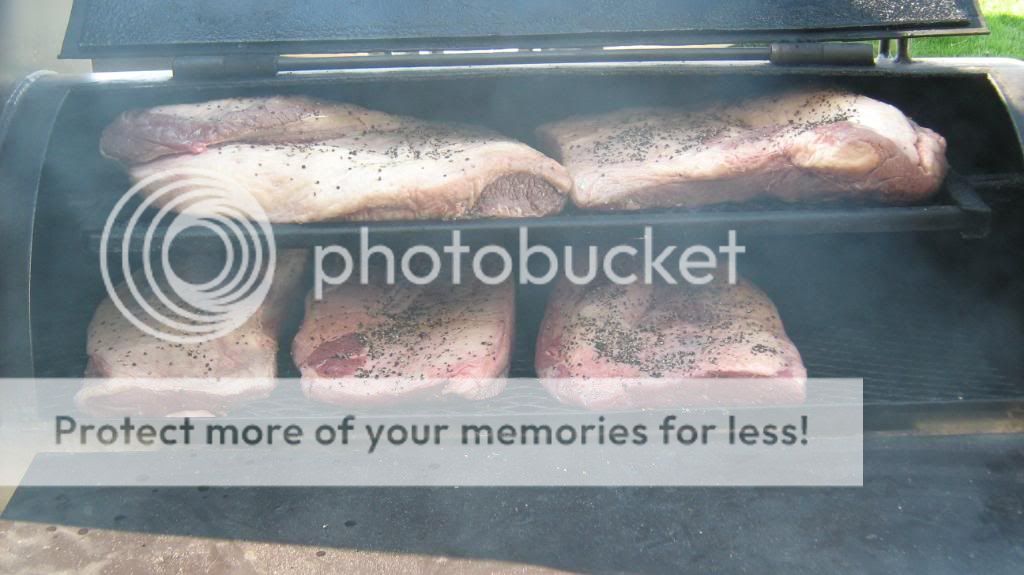Theresa B
Full Fledged Farker
- Joined
- Jul 24, 2011
- Location
- Virginia...
OK, we used a rub recipe and method from a BBQ WC's cookbook. Rub was too salty and too peppery. Cooked the brisket to 205 degrees internal, pulled off smoker and wrapped in blanket. Totally tough and totally dry. Did chicken thighs from same cookbook, seperate rub (also too peppery) and three differant sauces (also too peppery). Smoker got away from me and over cooked it, however the skin still didn't crisp up.
I can adjust how I do the chicken but the brisket has me stumped.
I can adjust how I do the chicken but the brisket has me stumped.
Last edited:





